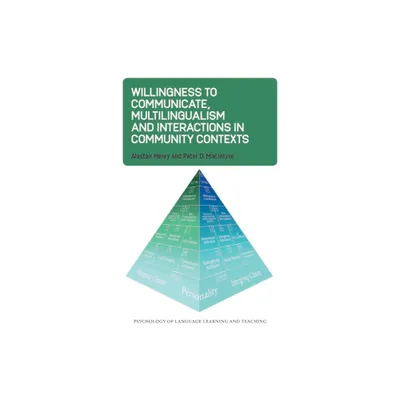Home
Interculturality and the Munchausen Effect: On Need to Rethink Speaking Subject Community Interaction
Loading Inventory...
Barnes and Noble
Interculturality and the Munchausen Effect: On Need to Rethink Speaking Subject Community Interaction
Current price: $66.99


Barnes and Noble
Interculturality and the Munchausen Effect: On Need to Rethink Speaking Subject Community Interaction
Current price: $66.99
Loading Inventory...
Size: Hardcover
*Product Information may vary - to confirm product availability, pricing, and additional information please contact Barnes and Noble
This book offers a conceptual intervention for Language and Intercultural Communication studies by advocating for a critical interdiscursive approach to research on interculturality.
The volume addresses two interrelated theses in research on interculturality; namely that the speaking subject in interaction reproduces the egocentrism and phonocentrism of the Munchausen Effect. In considering the first, the book traces the ways in which interculturality research has historically supposed the ‘speaking subject’—that is, the research participant—as the basis of truth and knowledge, not giving context to the discursive layers or paratexts involved in analyzing the subject’s speech. This notion of the ‘speaking subject’ being taken at face value prompts Simpson’s second interrelated argument on representation and historical conceptualizations of community in interculturality research, whereby, in trying to represent their subjects, researchers often impose a sense of community affiliation onto their subjects and end up negating their subjective identities. The book serves as a conceptual and practical response to calls for epistemological diversity and plurality within Interculturality in proposing an approach that brings epistemology and ontology together.
This book will be of interest to scholars in intercultural communication, language education, identity theory, and philosophy of education.
The volume addresses two interrelated theses in research on interculturality; namely that the speaking subject in interaction reproduces the egocentrism and phonocentrism of the Munchausen Effect. In considering the first, the book traces the ways in which interculturality research has historically supposed the ‘speaking subject’—that is, the research participant—as the basis of truth and knowledge, not giving context to the discursive layers or paratexts involved in analyzing the subject’s speech. This notion of the ‘speaking subject’ being taken at face value prompts Simpson’s second interrelated argument on representation and historical conceptualizations of community in interculturality research, whereby, in trying to represent their subjects, researchers often impose a sense of community affiliation onto their subjects and end up negating their subjective identities. The book serves as a conceptual and practical response to calls for epistemological diversity and plurality within Interculturality in proposing an approach that brings epistemology and ontology together.
This book will be of interest to scholars in intercultural communication, language education, identity theory, and philosophy of education.


















